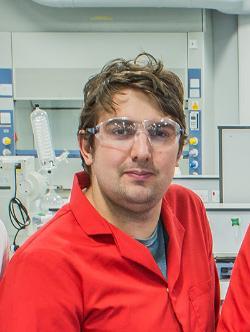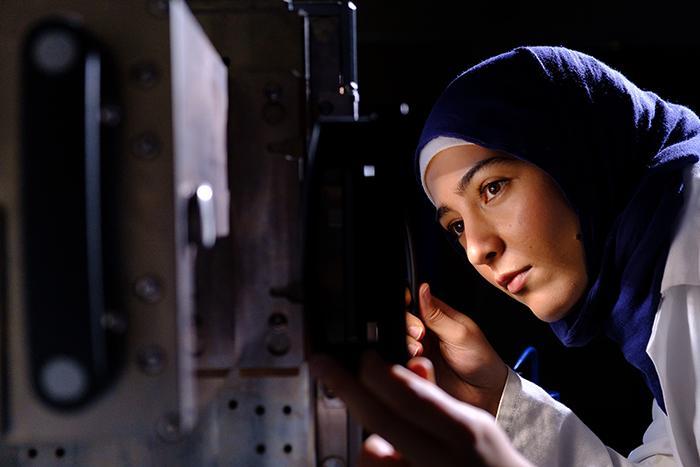Controlling Polymer-Solvent Interactions to Improve British Manufacturing Performance
Helping industry solve real world problems through polymer research
Polymers are used in thousands of everyday products, from packaging and paper to cosmetics and cars but all of these inventions depend on a solid understanding of often very complex chemistry.
The University of Bradford is one of a few independent UK science hubs where companies can access cutting edge technology and research, often at the fraction of the cost of hiring a private consultant.
Polymer scientist Assistant Prof Tom Swift says the role universities play in bringing products to market cannot be overstated.
“Often we are there at the very beginning of the process because it’s the chemistry that underpins the invention. For companies who have inventions, when they want to bring them to market, it can be a very daunting time for them, because they need to have a solid understanding that it will work and that there are no chemical pitfalls. Thanks to our level of expertise, the University of Bradford is ideally suited to assist industry in solving many of the material challenges it faces.”

Assistant Professor Tom Swift
Skipton-based Trio Healthcare Ltd manufactures silicone-based flange extenders and other medical products for people who have stomas, estimated to be around 100,000 people in the UK. Trio wanted to improve their products to make them easier to wear and remove without damaging skin around the stoma. They approached the University of Bradford to help develop a new product, which has now launched in the UK and is due to launch globally later this year, with a projected global market worth an estimated £3.5bn.
Without the expertise of the team at the University of Bradford the products would not contain the final additive mixture that leads to its high levels of performance, including increased comfort for extended wear, reduced pain on product removal and improved quality of life.

Another company we supported ran into difficulties with the US’s Food and Drug Administration over the validity of a chemical used in a paper anti-whitening process, which is used extensively in many sectors. University of Bradford experts were able to confirm the chemical’s authenticity, enabling the company to progress its application to the next stage.
Finally, Brighouse-based soap manufacturer John Drury wanted to launch a new product range of ‘melt and pour’ candles, and approached the University to help perfect the chemical processes needed.
The new understanding of ingredient interactions with moisture has allowed the provision of specific guidance on the storage conditions, use and shelf life of materials. Assistant Prof Swift adds: “Working with companies large and small is part of what we do in terms of chemical and biological analysis. It’s a relationship in which both sides benefit, because while the company gets an independent assessment and analysis of its product or process, we gain insight into what their needs are, and it enables research to take place that might not otherwise take place.”
